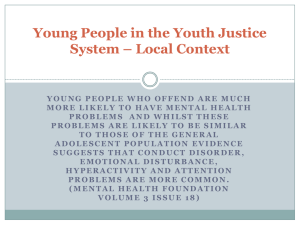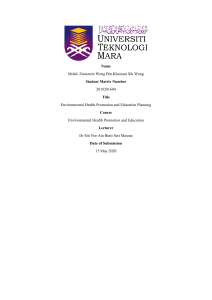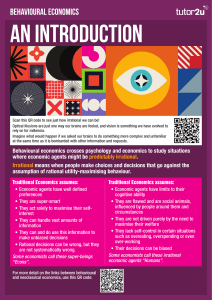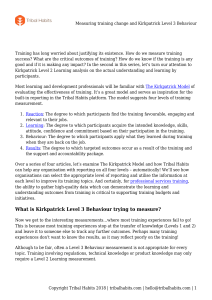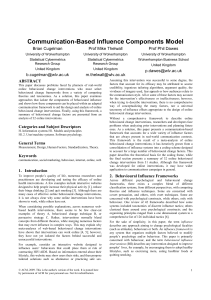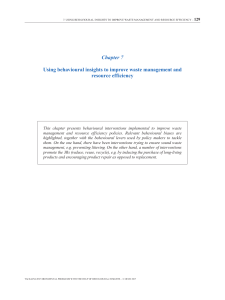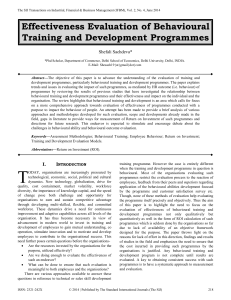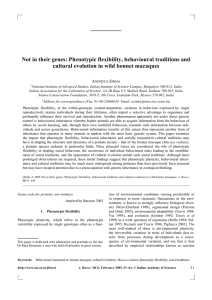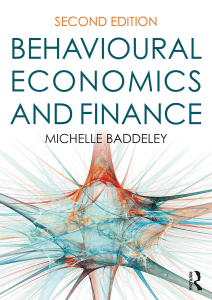The Role of Behavioural Science Susan Michie @UCLBehaveChange www.ucl.ac.uk/behaviour-change
advertisement
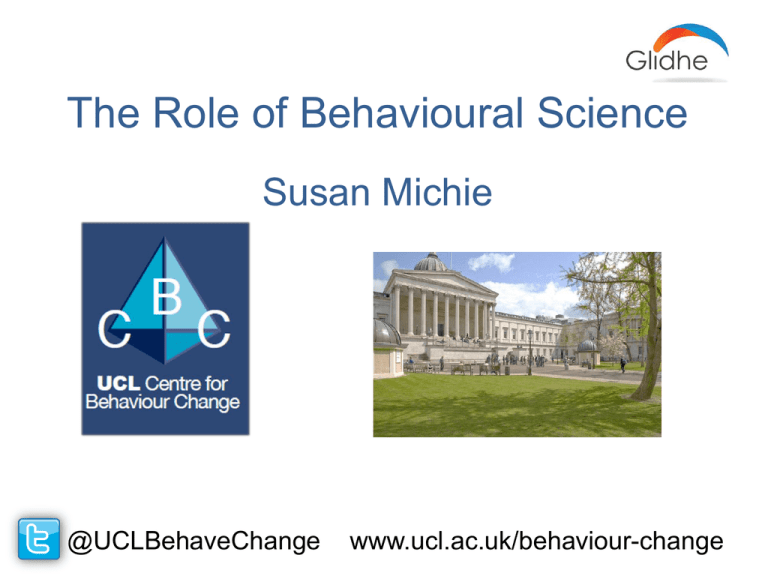
The Role of Behavioural Science Susan Michie @UCLBehaveChange www.ucl.ac.uk/behaviour-change Translating inter-disciplinary academic expertise Professor Susan Michie Director Dr Stephanie Lietz Project Manager Dr Caroline Wood Assistant Director Dr Lou Atkins Senior Teaching Fellow Sean Bamberger Research Administrator CBC Executive Committee • • • • • • Psychology Human-Computer Interaction Built Environment Engineering Health informatics Environmental sustainability • • • • • Economics Public Policy Law Behavioural medicine Arts & Humanities Glidhe partnership aims • Empower people to achieve their goals with minimum effort and maximum enjoyment – In real time in everyday life • Achieve this by – recognising that engagement is the first behaviour change challenge to address – bringing together expertise from behavioural science, computer science, human-computer interaction, engineering and design Some key behavioural principles Behaviours do not occur in a vacuum • In context of other competing or supporting behaviours • within or between individuals Start from understanding • perspectives of users • in context of everyday lives • Material and social Core ideas • Motivation: Increase • enjoyment of the experience • satisfaction with the outcome • trust of the process • Self-learning system • As a person uses the tools, it • ‘learns’ the places, times and situations associated with responses and • personalises support, getting feedback as to helpfulness There is a science of behaviour change • Evidence about – Behaviour change techniques – Delivery modes – Tailoring and personalising • Theories about – Mechanisms of action – Modifying factors • Individual and cultural differences; contexts; types of behaviour • Methods for intervention development, evaluation and dissemination Advancing behavioural science: opportunities • Large amounts of rapidly collected, real-time objective data in everyday contexts means possibilities for • Identifying effective components within interventions and rapidly building evidence • Refining theories about how interventions work and why their effects vary • Developing sophisticated designs for testing effectiveness and theory Conclusion • Exciting opportunity for – Behavioural and computer scientists to work closely together – Rapid cycles of • evidence and theory informed interventions • producing Big Data to … • build evidence and theory


